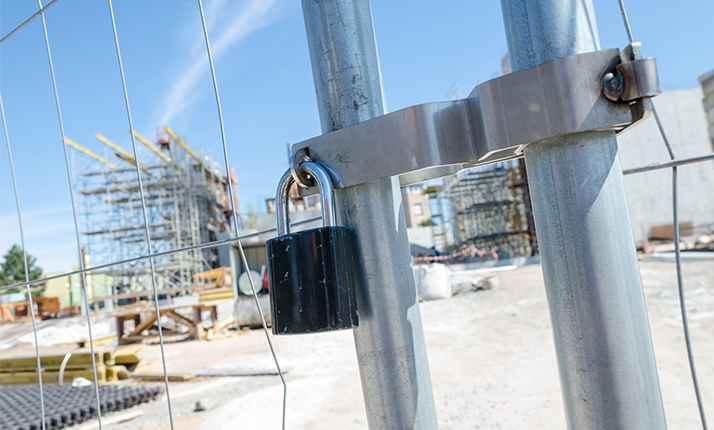With the current health concerns and disruption brought by the COVID-19 coronavirus pandemic, there is significant uncertainty on how this will affect the building and construction industry as a whole.
Before we begin to feel the full effect of lockdowns and quarantines here in Queensland, you should take the time to review your current contracts and consider what rights and remedies you may have in the event of an unforeseeable delay.
Delays and Extension of Time
Most standard form contracts used for domestic building projects (new homes, renovations and pool construction) allow for the parties to include a specific time allowance within the completion period for anticipated delays in the contract works schedule. Commonly, this delay allowance is used for anticipated inclement weather delays. Unless the contract also makes provision for other likely delays to be accommodated in the construction period, the likely effects of the coronavirus pandemic will need to be dealt with in another way.
Most contracts contain clauses relating to delays to the construction period that entitle the contractor to claim an extension of time. Normally, those clauses will contain a list of circumstances where, if the progress of works are delayed by one of the listed events, will entitle the contractor to an extension of time to the construction period.
While it is unlikely that the list will specifically include wording relating to a pandemic, the list of delay grounds may include other causes which may assist with the impacts of a pandemic – such as:
- unavailability of material necessary to carry out work;
- unavailability of labour, including subcontract labour, necessary to carry work with reasonable diligence; or
- any other cause not reasonably foreseeable as at the date of the formation of the contract beyond the reasonable control of the contractor.
If such grounds are listed in the contract, and the need for making a claim for an extension of time arises, whether you are a head contractor or subcontractor, you should give notice of the delay event as soon as the claimable delay becomes apparent. Your extension of time should be made in the manner and within the timeframes stipulated within the contract.
It is important for contractors to claim extension of time strictly in accordance with their contracts. Failing to make the claim may result in a substantial liquidated damages claim being brought by a client, even in circumstances where the delay is as a consequence of the effects of the coronavirus.
Certain contracts may also allow for a contractor to claim for delay damages in the event of the contractor being delayed. However, these clauses will typically exclude events that are beyond the control of both parties, such as a pandemic.
While a successful extension of time claim may delay the performance of the contract and prevent a client from claiming liquidated damages, it will not give either party grounds to terminate the contract in the event of an ongoing delay.
Force Majeure
Some contracts may have a “force majeure” clause that may prescribe a list of events beyond the reasonable control of the parties and what each party’s rights and obligations may be if any of those events were to occur. For example, the clause may allow the parties to bring an end to the contract or suspend the obligations of a party for the period of the force majeure event.
Prior to any attempt to rely on the force majeure clause, parties to a building contract should consider what other subcontracts or supply agreements may also be affected by the termination or suspension of the contract, as those subcontracts or supply agreements:
- may not include a force majeure clause at all; or
- the terms of the force majeure clause under those agreement may not be triggered under the same event.
Although a contractor may have force majeure rights in its building contract, if such rights do not also co-exist in the subcontracts or supply agreements, the contractor, for example, may be required to take delivery and pay for ordered materials that are no longer required because the head contract has been terminated.
Commercial building contracts commonly include force majeure clauses; however, most standard form domestic building contracts do not include a force majeure clause. Such clauses would need to be drafted separately as a special condition prior to entering into the contract.
Given the likely impact a pandemic may have on the building industry, the inclusion of a force majeure clause in all contracts should be carefully considered.
Frustration
In the absence of a force majeure clause, the common law frustration doctrine may apply. Frustration occurs where, without default of either party, a contractual obligation is incapable of being performed because the circumstances in which performance is called for would render it a thing radically different from that which was undertaken by the contract.[1]
Whether a contract has been frustrated or not will need to be determined on a case by case basis, but generally it should be noted that:
- frustration will not occur where one of the parties is at fault;
- the event which caused the frustration needs to be unforeseeable and uncontrollable for the parties to have anticipated at the time of making of the contract; and
- the parties must be prevented from fulfilling their obligations under the contract – it is not sufficient for the obligation to be merely more costly or difficult does not give rise to frustration of the contract.
If you would like us to review your current contracts, or would like us to provide input on any future contracts you intend to enter into, please do not hesitate to contact our team on (07) 3139 1874.
This update is provided for general information and educational purposes only and does not constitute legal advice. Readers should obtain appropriate independent legal advice based on their own specific circumstances.
[1] Codelfa Construction Pty Ltd v State Rail Authority of NSW [1982] HCA 51.




